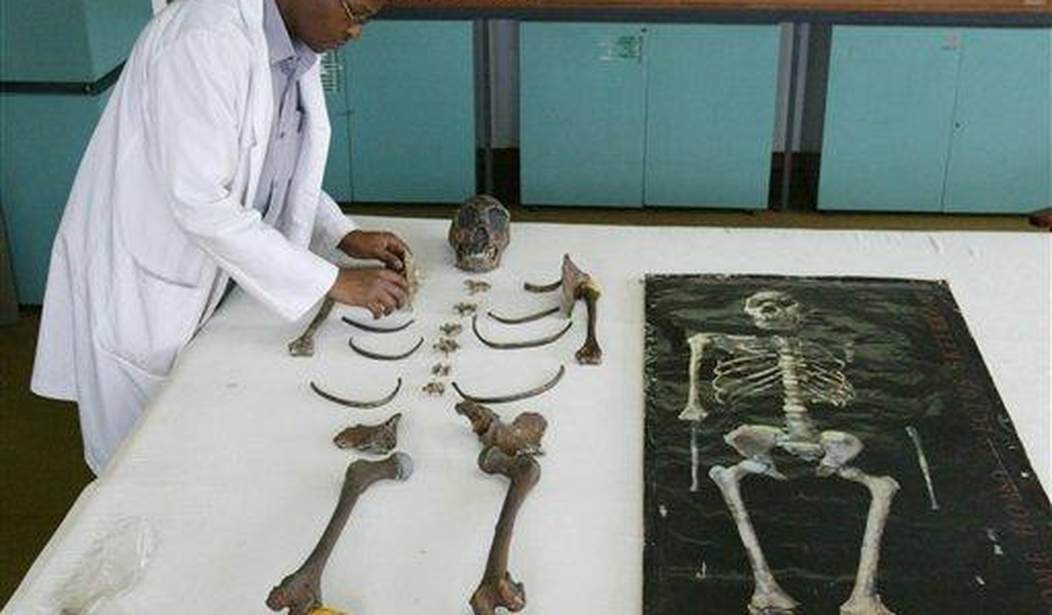The latest in a series of interesting Gallup polls touching on religion and morals that all seem to point in the same direction — a record high number of Americans hold liberal positions on moral values and gay marriage, a record low number believe the Bible is the literal word of God. All of that being so, it’s not hard to guess which way the trendlines point on evolution versus creation.
Three possibilities here: Pure creationism, evolution without God, and the hybrid position of evolution guided by God. For the first time since Gallup’s been polling this, pure creationism isn’t the plurality choice of Americans.

It’s hard to be sure from the graph but it looks like this is the first time a majority of Americans (57 percent) have said they believed that man evolved, either with or without divine guidance. Normally this is the point where I spitball some half-assed theory to explain the dips and spikes in the graph, but I’m stumped about the numbers over the past six years. The pure creationist position was trending downward, then made a big comeback in 2011 for no obvious reason. It’s tempting to call that result an outlier or statistical noise, but the hybrid position of guided evolution polled poorly in the low 30s in 2011 and remained flat in 2014, suggesting a real trend. Now suddenly it’s come surging back. Why? You tell me.
The 19 percent figure for evolution without God is interesting in light of this recent piece at FiveThirtyEight suggesting there may be many more atheists in the U.S. than everyone believes. Ask people if they think of themselves as “atheist” and chances are no more than three percent will say yes. Ask them if they believe in God without using the A-word and maybe 10 percent will say no. How many people secretly believe there is no God, though, and are simply reluctant to say so, even to a pollster? FiveThirtyEight notes a study that divided people into two groups and gave them identical questionnaires filled with innocuous statements (e.g., “I own a dog”) — with one exception. One group had the statement “I do not believe in God” added to their questionnaire. People in each group were asked to identify how many of the statements were true of them without specifying which ones were true. Then the numbers from the control group were compared to the numbers from the “I do not believe in God” group. Result: As best as researchers can tell from the numerical disparity, 26 percent don’t believe in God, way, way more than most surveys show. I’m skeptical that the number runs quite that high but the fact that 19 percent told Gallup they believe in evolution without God may mean the number of atheists is higher than the 3-10 percent range usually cited. After all, how many religious believers are likely to also believe that God played no role in man’s development? Per Gallup, just one percent of weekly churchgoers signed on to that proposition and just six percent of nearly weekly or monthly observers did. “Evolution without God” may be a reasonably good proxy for atheism.
Still, despite the hype about Americans’ increasing godlessness, a divine role in man’s development — whether via creation or evolution — remains the majority position of nearly all subgroups. Less educated people are more likely to believe it than the more educated, but even among Americans with postgraduate degrees, two-thirds see God’s hand at work somehow in modern man (45 percent believe in guided evolution, 21 percent believe in creationism) versus 31 percent who believe in evolution without God. It’s still a very religious country. Just not quite as much as it used to be.







Join the conversation as a VIP Member